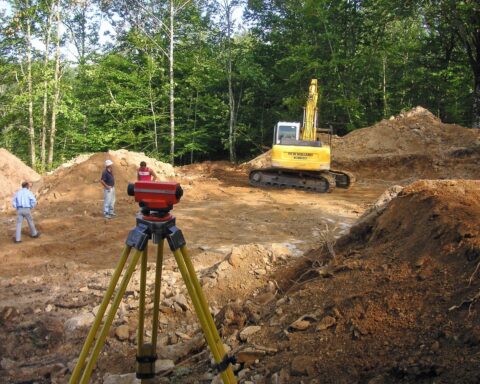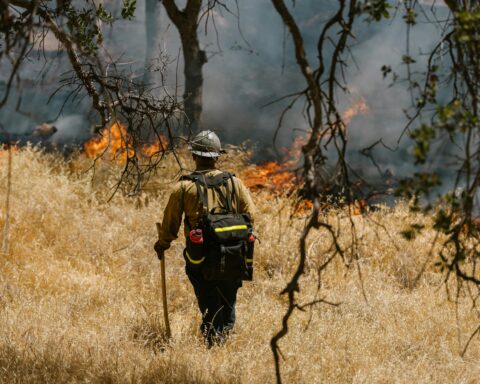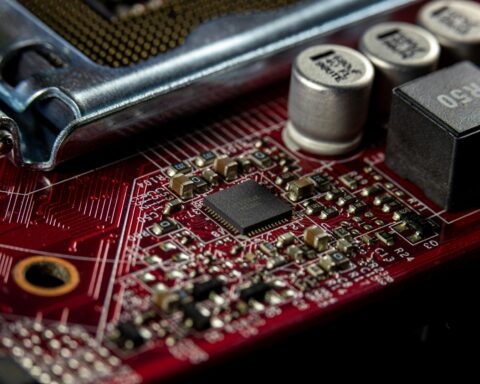An estimated 3 million electric and hybrid vehicles are expected to be on the roads of New York by 2030, prompting state leaders to nearly double spending to accelerate building a charging network.
The New York Public Service Commission (PSC) approved a new budget for the state’s Make-Ready Program on Nov. 16 as part of review of the program. The new funds will help the state achieve an increased goal of building over 43,100 mid-level charging ports and 6,300 fast-charging ports by 2025.
The PSC set an initial budget of $701 million, but the commission doubled that to $1.24 billion, which includes increasing spending on programs in disadvantaged communities from $206 million to $372 million. Funding for the program comes from electric utility rates and is available until the state reaches its program goals or until November 2025, a spokesman from the PSC confirmed.
The program was approved in July 2020 to accelerate building a statewide network of EV charging stations. It encourages innovation from private companies to help the state meet its zero-emission goals. Participants can install Level 2 or direct current fast charging (DCFC) plugs for EVs using incentives to help offset upfront costs.
L2s allow drivers to travel up to 20 miles per hour of charging and require a medium voltage that would power larger appliances such as dryers. DCFCs allow for 30 miles of travel per 10 minutes of charging and are the fastest charging option.
Nationwide, the number of EV charging stations increased over 170% to 53,764 between 2018 and 2022, the last year for which data is available, according to the Alternative Fuels Data Center (AFDC). New York is second to California in the number of total EV charging stations and ports.
As of Nov. 21, New York has 3,844 total EV charging station locations with 9,594 L2 ports and 1,307 DCFC ports, according to the AFDC. Most of these are publicly available locations.
To increase publicly available options in disadvantaged communities, New York will also spend $25 million on a micromobility program that would allow residents to charge devices such as electric bikes, scooters and skateboards. Non-vehicle options in urban areas expands the benefits of EV options “to disadvantaged communities residents who rely on e-bikes and e-scooters to get to work or to make a living, including delivery work,” the PSC noted in its program review.
Other features of the Make-Ready Program include reimbursing entities up to 100% of the costs for building nonresidential EV charging infrastructure, including when building DCFCs available to the public in disadvantaged communities.
Additionally, companies can apply for incentives through utilities as they seek to electrify their fleet of vehicles. Through 2025, companies can apply for a voucher program for 90% reimbursement of infrastructure costs for medium- to heavy-duty electric vehicles.
While the Make-Ready Program is being funded through ratepayer dollars, the state is also receiving $37.4 million annually for five years in federal funding through the Bipartisan Infrastructure Law to build EV charging stations along Alternative Fuel Corridors (AFCs).
The Federal Highway Administration’s National Electric Vehicle Infrastructure (NEVI) Formula Program allows states to build EV charging stations every 50 miles along AFCs and within 1 mile of those highways. However, any sites developed through the NEVI program could also be eligible for Make-Ready Program incentives, a PSC spokesperson confirmed.
New York has 56 EV charging stations and nearly 300 ports along its AFCs. Comparatively, Pennsylvania will receive $36.5 million per year to expand its EV charging network along key highways. The state has 20 EV charging stations with 87 ports currently along AFCs, according to AFDC data.
All news and information on this site is provided by the team at Strategic Partnerships, Inc. Check out this short 1-minute video that provides a quick overview of how we work with clients.













